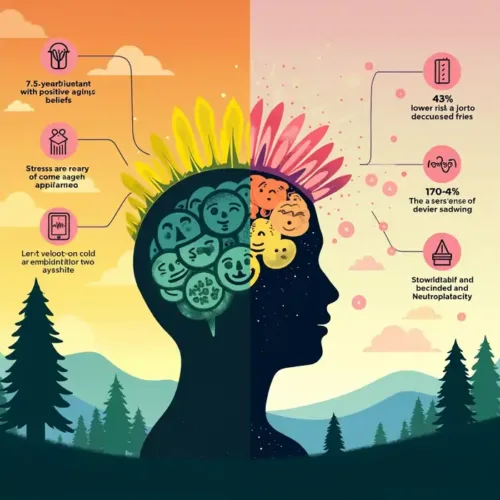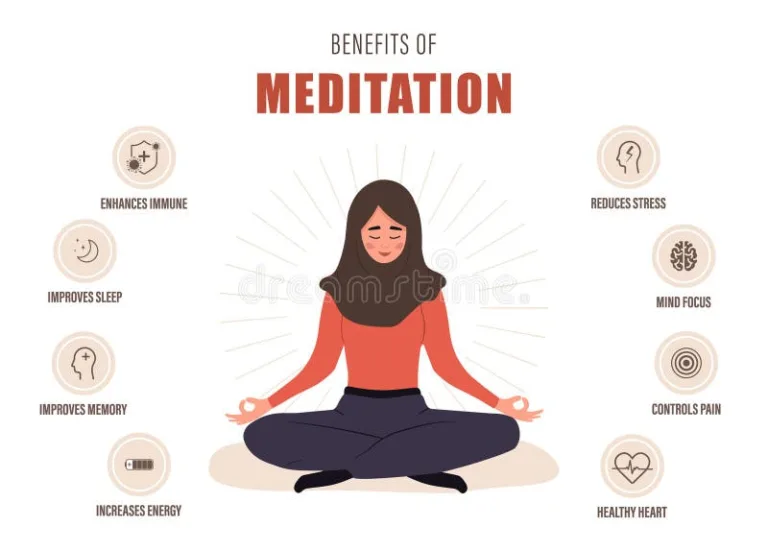The Surprising Science: How Friendships Can Extend Your Life Span

The numbers are startling – loneliness affects up to half the population in industrialized societies and takes a toll on their lifespan. This systemic problem has grabbed researchers’ attention, particularly since good social connections can boost survival odds by 50%.
A healthy social life means much more than just having people around. So, how friendships can extend your life span? – The science shows that strong bonds with others help bring down blood pressure, cut inflammation, and boost heart health. People who stay socially active face lower risks of chronic conditions like heart disease, diabetes, and various cancers.
The sort of thing I love is the science behind how friendships boost our longevity. We’ll get into surprising research findings and practical ways you can build meaningful connections. Our focus will be how different relationships affect our health and the steps needed to create a more connected life.
How Friendships Can Extend Your Life Span?

Image Source: Dreamstime
Social connections leave measurable biological footprints on our bodies. Our life span directly benefits from meaningful relationships that activate complex physiological systems in our body.
How social connections affect stress hormones
Good friendships change how our bodies handle stress at a fundamental level. High levels of cortisol—our primary stress hormone—speed up aging and make us more prone to diseases. People who maintain supportive relationships show lower baseline cortisol levels than those with problematic relationships [1].
People experience smaller cortisol spikes with friends nearby during stressful situations compared to facing them alone [2]. This stress-buffering benefit stays consistent throughout life. A study of salivary cortisol revealed that adults of all ages working with familiar partners maintained lower cortisol levels than those paired with strangers [3].
The inflammation-reducing power of friendship
Most age-related diseases stem from chronic inflammation. Research shows that people with close, supportive relationships have lower systemic inflammation levels than those who are socially isolated [1]. Social isolation changes white blood cell behavior and leads to increased inflammation and weaker immune responses [4].
This relationship proves so vital that strong social connections lower your risk of inflammation-driven conditions like cardiovascular disease, cancer, and type II diabetes [1]. The benefits work both ways – giving support to others can be as effective as receiving it to reduce inflammatory markers like interleukin-6 [5].
Your brain on friendship: Neurochemical benefits
Your brain releases powerful chemicals during social interactions that benefit both mind and body:
- Oxytocin rises during positive social interactions to promote bonding and reduce stress [2]. It builds trust and enhances social memory [2].
- Dopamine makes social interaction rewarding and creates positive feedback loops during human connections [6].
- Serotonin produces good feelings from healthy relationships and balanced levels improve mental health [6].
- Endorphins release during social contact to increase tolerance for physical and emotional pain [6].
Balanced levels of these four chemicals improve mental fitness and decrease chronic disease risk [6]. The physical and mental benefits of social connection work together to create biological conditions that support a longer life span.
Surprising Research: Friendship vs. Traditional Health Factors

Image Source: NASM Blog
Scientists have been amazed by research findings about how friendship affects our health. The evidence points to something remarkable – our social connections might add as many years to our life as the health basics we usually focus on.
Social ties matter more than diet and exercise
Most health campaigns tell us to eat right, exercise, and avoid bad habits. But strong relationships deserve just as much attention. The largest longitudinal study shows that social connections affect our risk of death just as much as smoking and drinking. This is a big deal as it means that relationships matter more than physical activity and obesity [7].
A game-changing analysis of 148 studies with over 300,000 people found something fascinating. People who maintained stronger social bonds were 50% more likely to survive than those who didn’t [7]. Here’s the kicker – having few friends is as dangerous as smoking 15 cigarettes every day [8].
Professor Rose Anne Kenny puts it plainly: social participation, friendship, and relationships add just as many years to your life as exercise, diet, and staying smoke-free [9]. On top of that, a major review showed that social connections played a bigger role in people’s survival than alcohol, exercise, body mass index, and air pollution. Only smoking came close to having such a strong effect [10].
The extra years friendships add to your life
The numbers tell a powerful story about friendship’s effect on how long we live. The Australian Longitudinal Study of Aging found that people with the most friends lived 22% longer than those with the fewest [8].
Another detailed study revealed that people with the most social connections were about half as likely to die as those with smaller networks. These results held true even after accounting for wealth, health status, smoking, exercise, and diet [11].
The benefits stack up even more for older adults. Research shows that supportive relationships slow aging by one to two years compared to those without such bonds [12]. A newer study, published with nearly 13,000 adults over 50, found people with quality friendships were 24% less likely to die during the eight-year study period [13].
Resources: World Health Organization, National Academies of Sciences, American Heart Association
Quality vs. Quantity: What Science Says About Your Social Circle
Science shows us something fascinating about friendships and how long we live – both the number of friends and how close we are to them play different roles in extending our lifespan.
The optimal friendship number for health benefits
Research reveals a sweet spot in friendship numbers. You get the most satisfaction and health benefits from having three to six close friends [14]. This number isn’t random – people with fewer than five close relationships felt much lonelier during the COVID-19 pandemic [14].
Having more than six close friends doesn’t add much to life satisfaction [15]. This matches what Robin Dunbar discovered – humans usually keep about five people in their closest emotional circle [15]. Your mental health might actually suffer if you try to maintain too many close friendships (15 or more) [14].
Deep connections vs. casual acquaintances: What matters more
The quality of relationships becomes more valuable than quantity, especially if you’re older [16]. Both deep and casual connections serve unique purposes. Your close friends help you through tough times, while casual acquaintances bring fresh ideas and new points of view [15].
These casual connections are valuable – they boost happiness and help you feel part of a community [15]. Deep connections are still vital though. The largest longitudinal study found that high-quality adult friendships protect you better against anxiety and depression [17].
How negative relationships affect your health
Bad friendships can harm you more than having no friends at all. People stuck in low-quality friendships face twice the risk of early death – that’s worse than smoking 20 cigarettes every day [17]. Stressful friendships raise your blood pressure, weaken your immune system, make anxiety worse, and increase your heart disease risk [18].
UCLA researchers found that difficult friendships raise inflammation-causing proteins in your body. This can lead to diabetes, heart disease, and cancer [2]. The effects are real – many people get headaches and feel unwell from toxic relationships [2].
Resources: National Institutes of Health, Harvard Medical School, Mayo Clinic
Building a Healthy Social Life at Any Age

Image Source: Dreamstime.com
You can develop the skill of building meaningful social connections at any age. This skill brings by a lot of benefits to your life span. Starting over in a new place or deepening existing relationships becomes easier with research-backed strategies that help create a lifestyle rich in social connections.
Friendship-building strategies that actually work
Lasting friendships need consistency and purposeful effort. Research shows you need about 50 hours to build a casual friendship and 200 hours to create a close friendship [19]. You should consider friendship as something that needs action instead of waiting for relationships to grow naturally.
To get the best results:
- Show up regularly at places that match your interests (3-5 times weekly at the same time)
- Pick activities where people interact naturally, like classes or volunteer opportunities
- Make the first move by suggesting meetups outside the original setting
- Show real interest by asking questions and appreciating others
People who see friendship as something that needs effort feel less lonely as time passes [20]. The belief that others like you creates friendlier behavior and starts a positive social cycle.
Digital vs. in-person connections: Finding the right balance
Nothing replaces face-to-face interaction for optimal health benefits. Meeting friends in person at least once weekly leads to better physical and mental health, but texting and calling don’t offer similar benefits [21].
Digital connections still matter though. Research confirms that computer-based interactions help more than no social contact at all, even though meeting in person gives the biggest mood boost [22]. You should combine both approaches—use technology to stay connected between real-life meetings.
Overcoming social anxiety to form meaningful bonds
Social anxiety makes many adults intensely fear judgment in social situations and can disrupt relationship building by a lot. People with social anxiety often avoid being vulnerable, yet vulnerability deepens connections [23].
A gradual approach helps beat this barrier. Start by being in public spaces without interaction, then move to structured activities where socializing isn’t the main focus [24]. Challenge negative thoughts when they pop up. Cognitive behavioral therapy (CBT) works especially well as professional support. It helps people handle anxiety while building significant social skills [25].
Resources: National Institute of Mental Health, Centers for Disease Control and Prevention, American Psychological Association
Conclusion
Research proves that true friendships do more than just make us happy – they trigger biological changes that help us live longer, healthier lives. Quality social bonds rival diet and exercise as health factors and can boost our life expectancy by up to 22%.
The science behind this is compelling. Our bodies respond to good relationships with lower stress hormones, less inflammation, and better-balanced brain chemicals. These positive effects grow stronger when we maintain three to six close friendships and build casual connections that broaden our viewpoint.
Creating lasting friendships needs time to think over, but the benefits make every effort count. A balanced mix of face-to-face meetings and digital connections creates an eco-friendly path to social wellness. Professional therapy support can help you overcome any social anxiety that might be holding you back.
Friendship deserves the same priority as other health essentials throughout our lives. Your age doesn’t matter – whether 25 or 85, you can always strengthen existing bonds or create new connections that could add years to your life.
Resources for Further Reading:
- National Institute of Mental Health (www.nimh.nih.gov)
- Harvard Medical School Health Blog (www.health.harvard.edu)
- American Heart Association (www.heart.org)
- World Health Organization (www.who.int)
FAQs
Q1. How significantly can strong friendships impact our lifespan?
Research shows that people with strong social connections have a 50% increased likelihood of survival compared to those with weaker ties. In fact, individuals with the most friends were found to outlive those with the fewest by 22%.
Q2. Is there an ideal number of close friendships for optimal health benefits?
Studies suggest that having three to six close friends provides the maximum life satisfaction and health benefits. Interestingly, having more than six close friends doesn’t significantly increase life satisfaction further.
Q3. How do friendships affect our body’s stress response?
Strong friendships fundamentally alter how our bodies respond to stress. People with supportive relationships show lower baseline cortisol levels compared to those with conflict-ridden connections. When facing stressful situations with a friend present, individuals experience smaller increases in cortisol compared to facing challenges alone.
Q4. Can digital connections replace in-person interactions for health benefits?
While digital connections play a valuable role, face-to-face interaction remains irreplaceable for optimal health benefits. Meeting friends in person at least once weekly strongly predicts better physical and mental health, whereas texting and calling don’t bring similar advantages.
Q5. How can one build meaningful friendships at any age?
Building lasting friendships requires consistency and intentional effort. Some effective strategies include becoming a regular at places aligned with your interests, joining activities where interaction is natural, taking initiative by suggesting follow-up meetings, and expressing genuine interest by asking questions and showing appreciation.
References
[1] – https://pmc.ncbi.nlm.nih.gov/articles/PMC3223962/
[2] – https://www.cbsnews.com/newyork/news/toxic-friendship/
[3] – https://beckman.illinois.edu/about/news/article/2021/06/29/keep-your-friends-close-cortisol-levels-low-for-life-study-finds
[4] – https://www.bbc.com/future/article/20230329-why-friendship-makes-us-healthier
[5] – https://news.osu.edu/giving-social-support-to-others-may-boost-your-health/
[6] – https://www.hprc-online.org/total-force-fitness/tff-strategies/social-fitness-and-performance-part-1-impact-brain-and-overall
[7] – https://journals.plos.org/plosmedicine/article?id=10.1371/journal.pmed.1000316
[8] – https://www.inc.com/jeff-haden/decades-of-research-shows-friends-make-you-happier-healthier-but-if-you-want-to-live-a-longer-life-theres-one-large-catch.html
[9] – https://www.businessinsider.com/longevity-antiaging-friendship-social-interaction-relationships-2023-9
[10] – https://www.bbc.com/future/article/20240722-why-your-friends-make-you-live-longer
[11] – https://www.livemint.com/science/news/not-exercise-diets-or-vitamin-supplements-friends-help-you-live-longer-heres-how-11721745605937.html
[12] – https://www.prb.org/resources/todays-research-on-aging-44-more-than-a-feeling-how-social-connection-protects-health-in-later-life/
[13] – https://www.npr.org/sections/health-shots/2023/11/20/1214189630/close-friends-can-help-you-live-longer-but-they-can-spread-some-bad-habits-too
[14] – https://www.socialconnectionguidelines.org/en/evidence-briefs/how-many-friends-do-you-need
[15] – https://www.everydayhealth.com/emotional-health/is-there-a-right-number-of-friends-to-have/
[16] – https://www.psychologytoday.com/us/blog/media-spotlight/201911/is-quality-better-quantity-in-social-relationships
[17] – https://firstthings.org/how-many-friends-should-i-have/
[18] – https://www.sharecare.com/healthy-aging/longevity/toxic-friendship-make-die-sooner
[19] – https://theeverygirl.com/how-to-make-friends-as-an-adult/
[20] – https://drmarisagfranco.com/how-to-make-friends-as-an-adult/
[21] – https://www.washingtonpost.com/wellness/2024/05/28/in-person-friendships-health-benefits/
[22] – https://www.psychologytoday.com/us/blog/close-encounters/202209/how-do-digital-and-in-person-interactions-affect-wellbeing
[23] – https://nationalsocialanxietycenter.com/2021/06/23/social-anxiety-roadblocks-to-deepening-relationships/
[24] – https://www.betterhelp.com/advice/loneliness/im-so-lonely-how-to-build-meaningful-social-connections/
[25] – https://www.nimh.nih.gov/health/publications/social-anxiety-disorder-more-than-just-shyness






